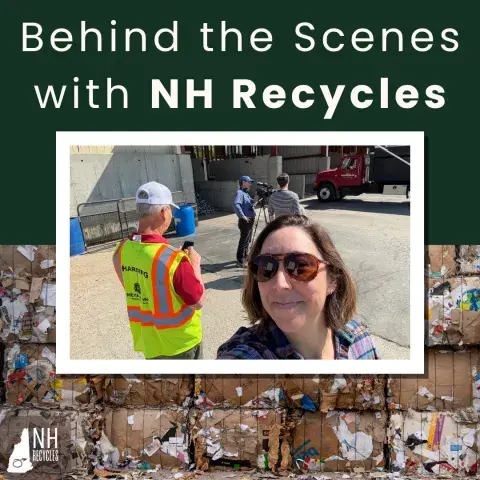
The past couple of weeks have been very busy for NH Recycles' Education & Grants Manager, Andrea Folsom, and Municipal Recycling Advisor, Steve Bean, as they have been criss-crossing New Hampshire with a small video recording crew creating three (or possibly more) recycling videos for the Recycle Right North Country campaign. The three videos will follow select recyclables - aluminum cans, glass bottles, and cardboard boxes - from the transfer station on their recycling journey. All three recyclables begin the process at transfer stations in northern New Hampshire and then travel - some farther than others - as they turn into new aluminum cans, kraft paper bags, and a processed glass aggregate to be used in road and sidewalk projects.
Videos are never shot in the order the clips will appear and these were no different. The first shooting day was spent in Claremont at the APC Paper Mill filming the full cardboard recycling and kraft paper manufacturing process from the time a truck unloads bales of recycled cardboard to the time a truck loads up new reams of wrapped kraft paper. It was a very hot (100º+) and long day for us, along with our videographer, Andy, and his young assistant who was tasked with carrying his gear and holding the boom to catch the many sounds of the paper mill.
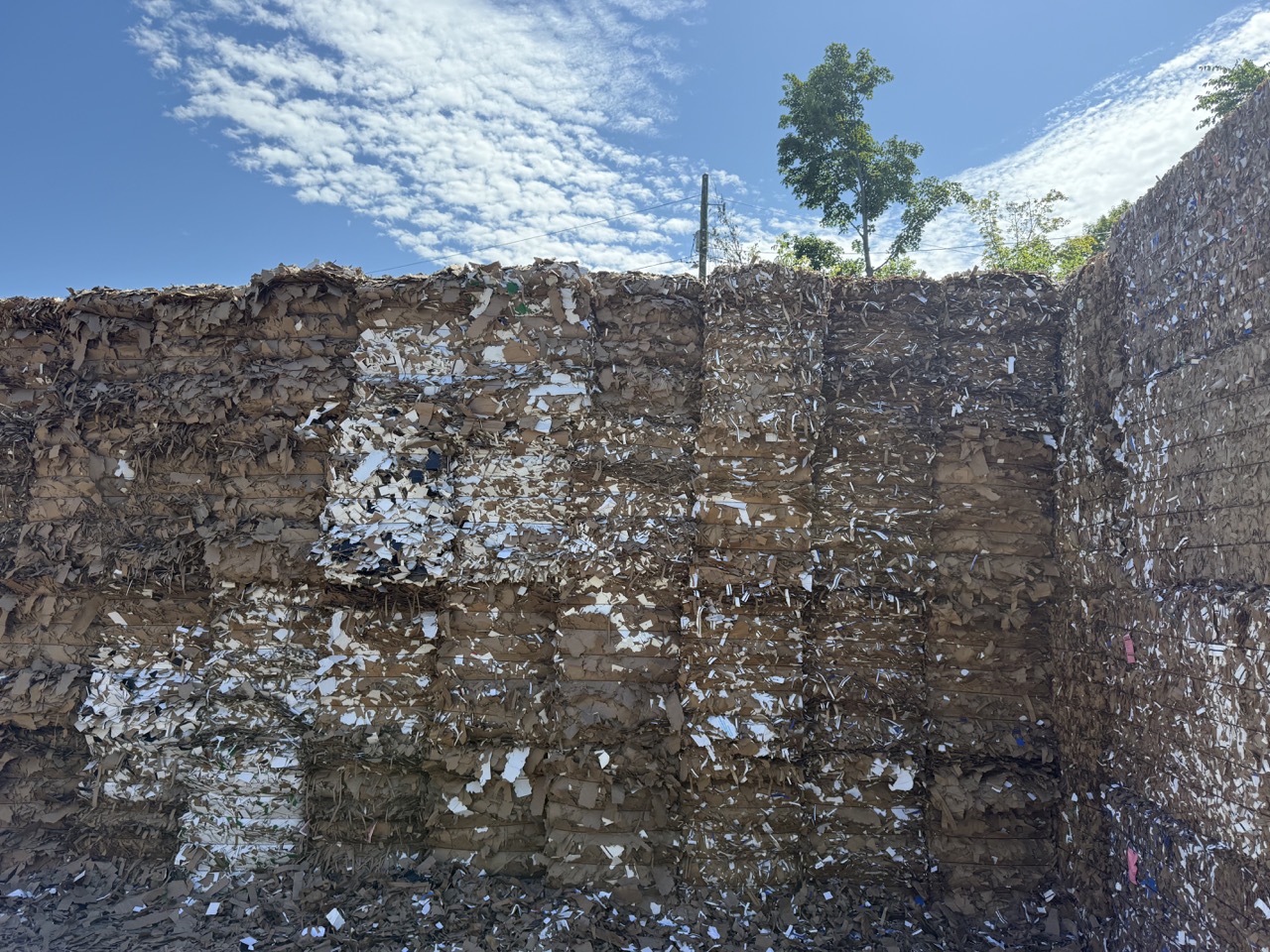
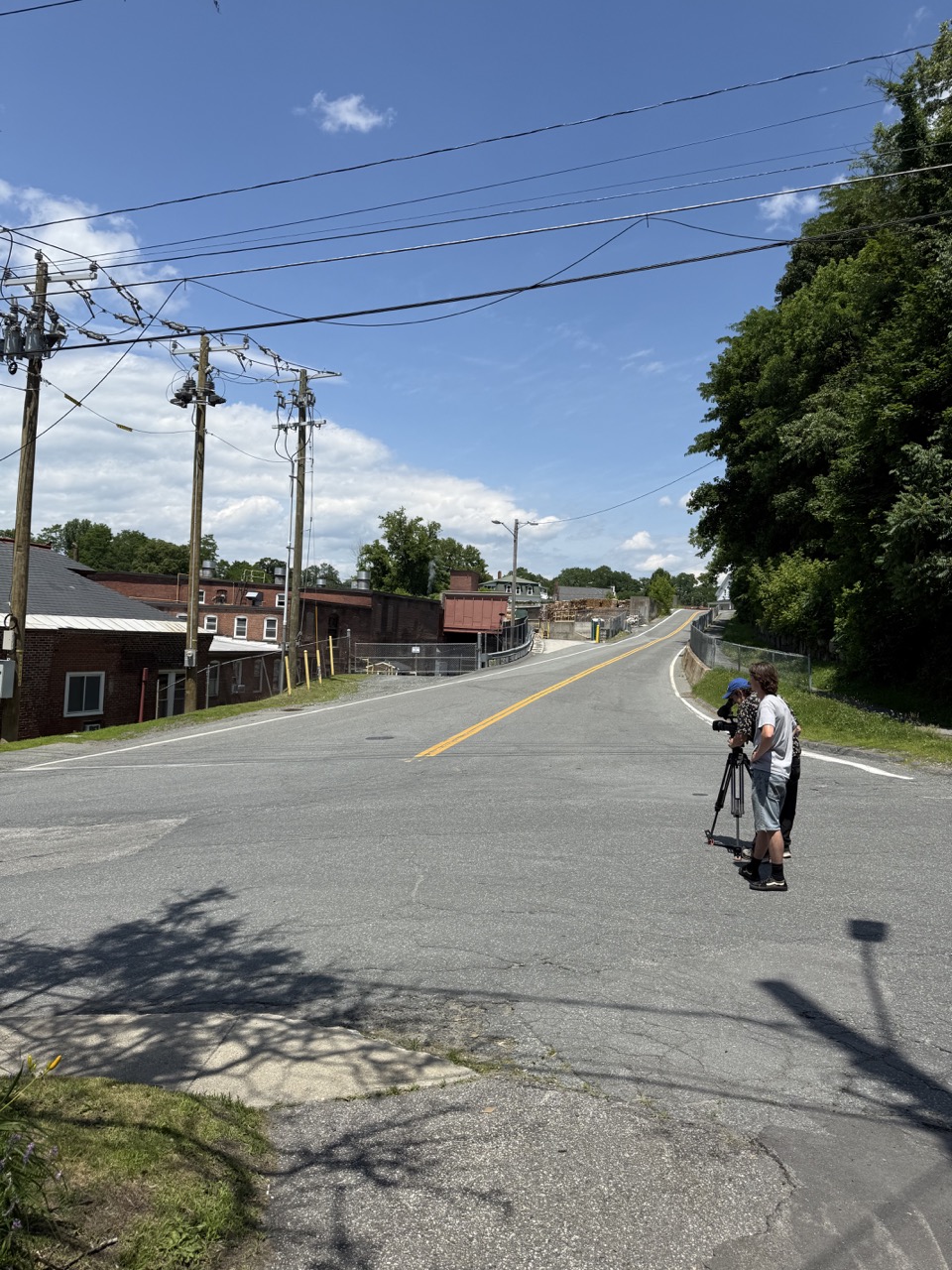
The safety standards were very strict in the mill. We had steel toe boots, removed all jewelry, wore eye protection and bright vests so we couldn't be missed. In addition, we were always flanked by at least two safety employees to make sure we didn't make any sudden moves near the massive 100-year-old machinery. We got to see a truck unloading bales of cardboard from a box company and then watched the opened bales being pushed into a pulper that mixed the paper with water and removed contaminants. The mill itself was four stories, but we only toured two of the levels. The most amazing part was seeing the paper fibers whipping across as a large sheet made up of 90% water and only 10% fibers, then as it is cooled and consolidated with steam, the water percentage drops, until you have a beautiful roll of kraft paper, used for instance in the bags you find at Hannaford Supermarket!
Our second day of filming was entirely spent in the North Country. We started off at Northumberland filming willing residents separating their aluminum and steel cans at the transfer station. Paul Perras, Northumberland's Transfer Station Manager, then helpfully and realistically loaded the cans into his truck and drove away. (He did come back!)
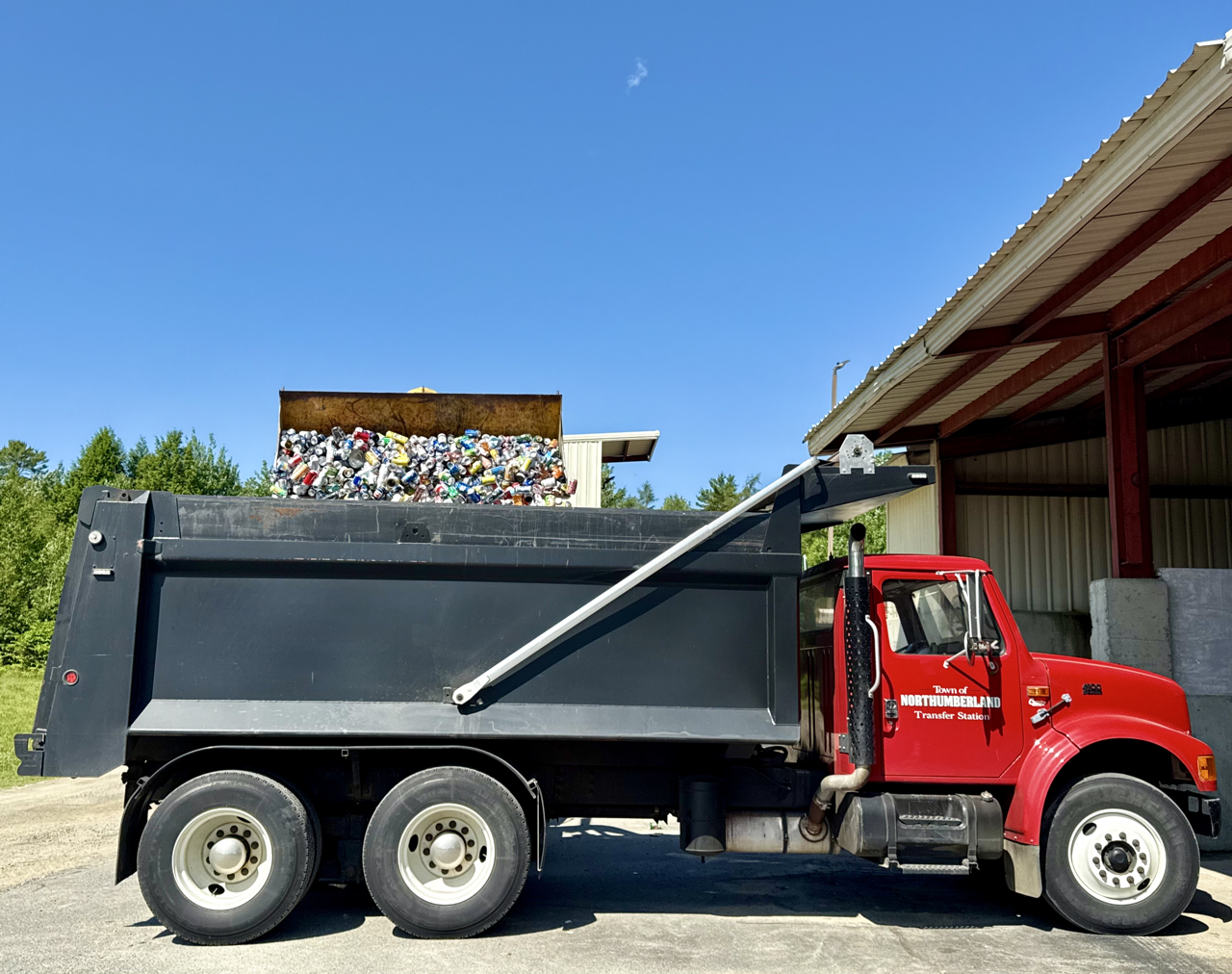
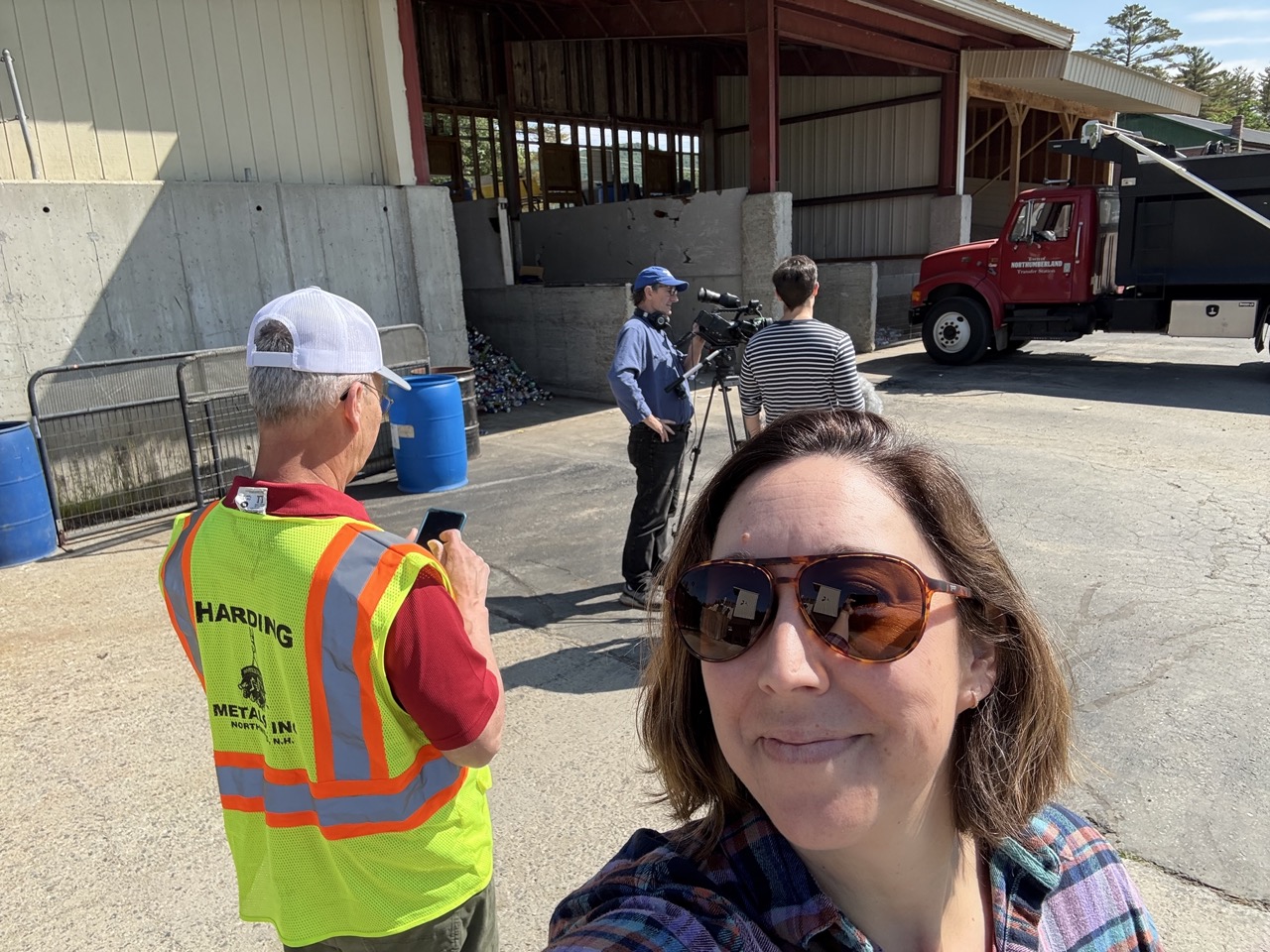
We then went to Lancaster to capture the cardboard drop-off and baling process. We saw two loads of cardboard coming in from the morning curbside pickup. Though the transfer station was closed to the public that day, the process is the same for residents, who drop their cardboard off right by the baler. We then got some great shots of a nice cardboard bale coming out of the baler and getting loaded into storage with Lancaster's new electric loader!
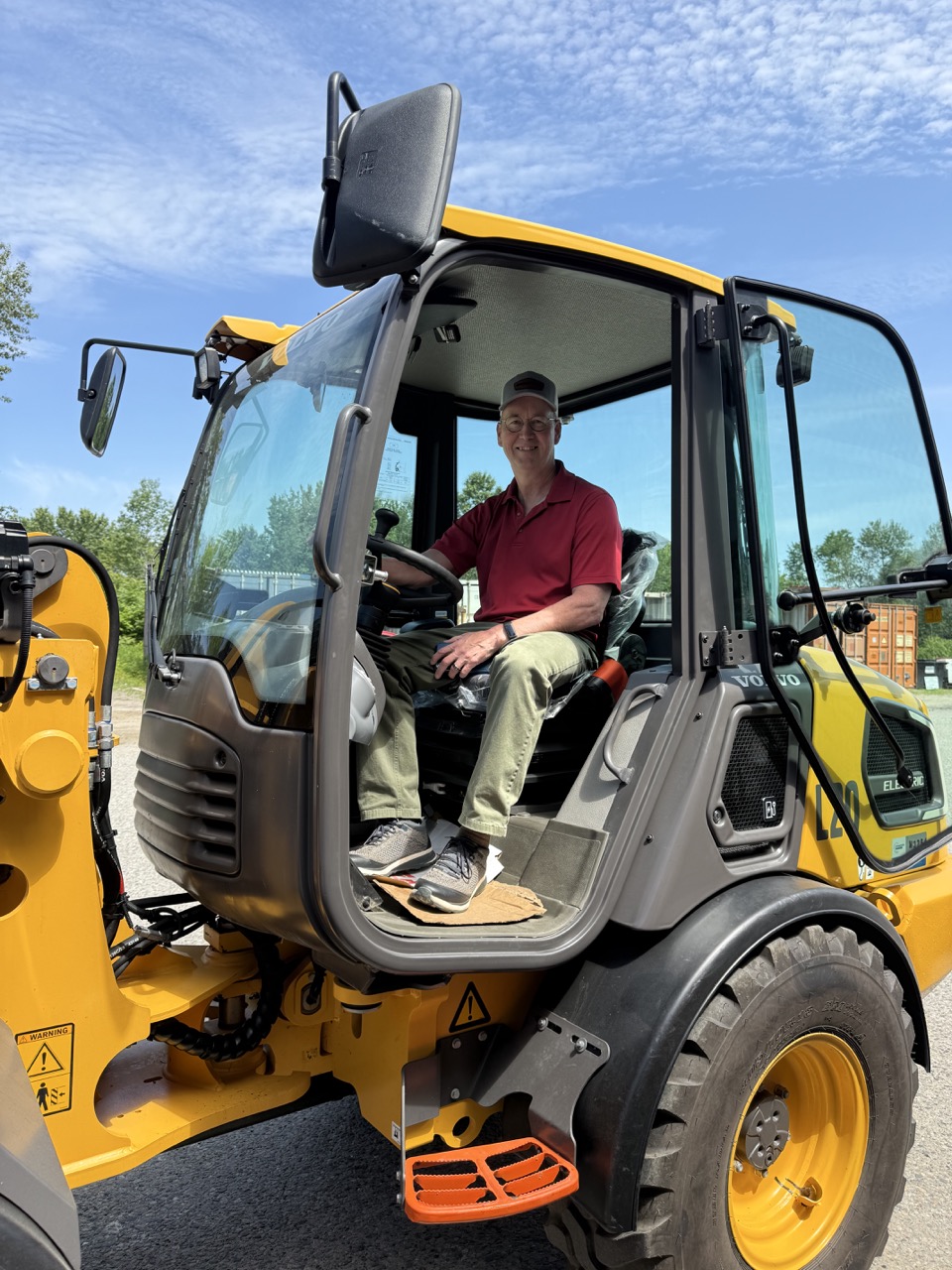
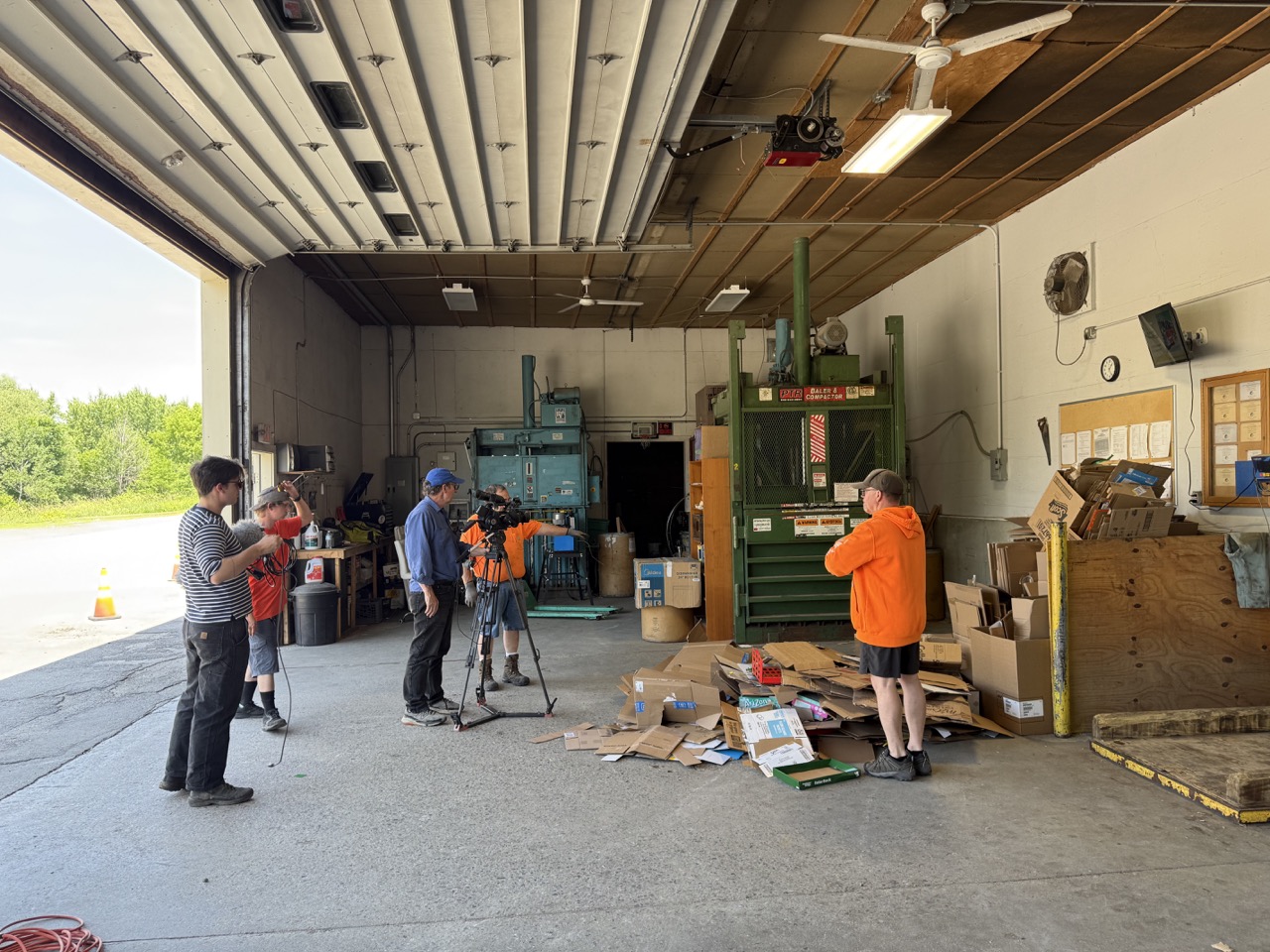
Finally, we ended in Littleton, where we got some nice shots of glass recycling and will be making a mini-PGA (processed glass aggregate) video, as Littleton is one of our PGA host sites.
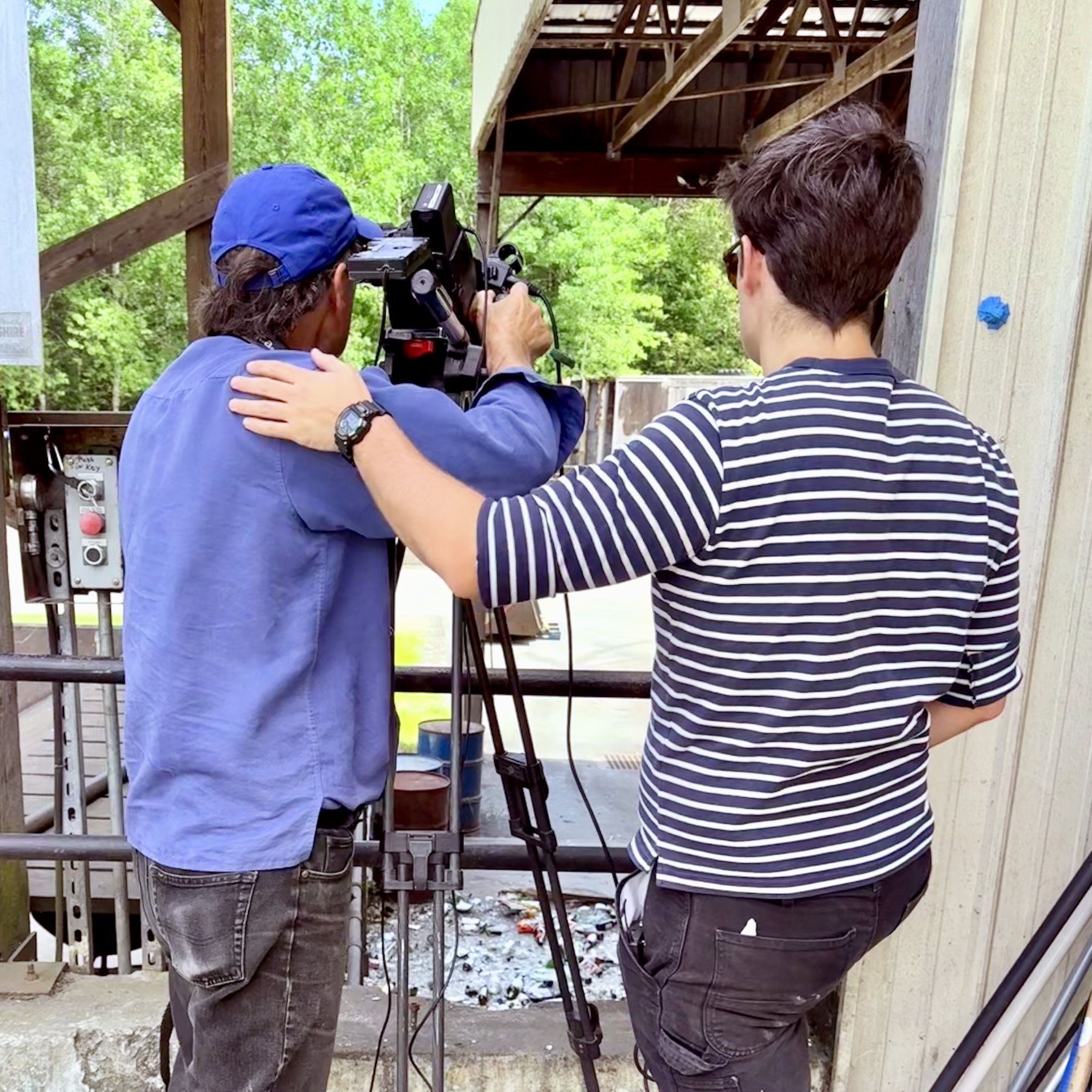
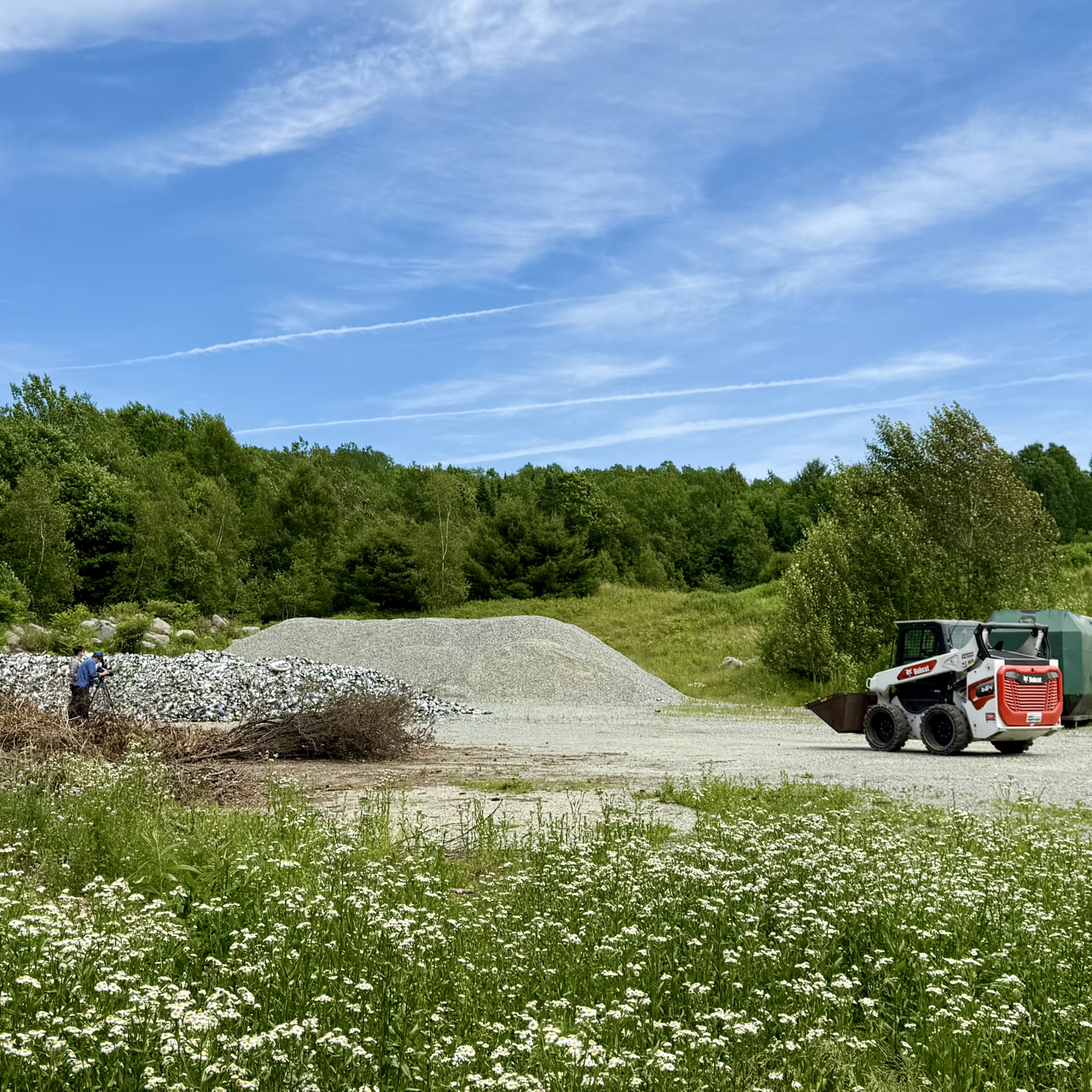
Littleton was also kind enough to bale up a load of aluminum for us to shoot on their horizontal baler, so that we were able to capture that process on that video as well.
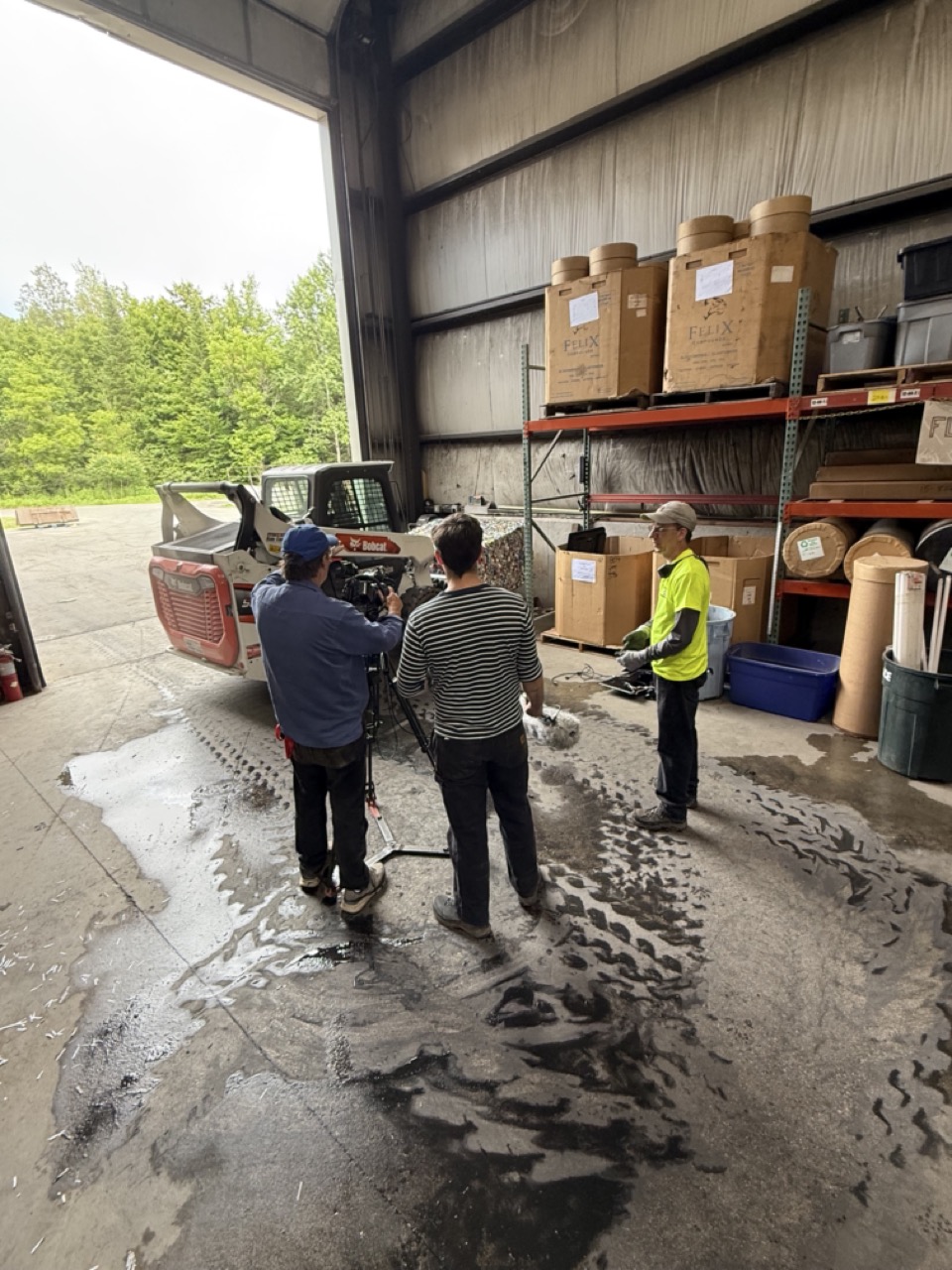
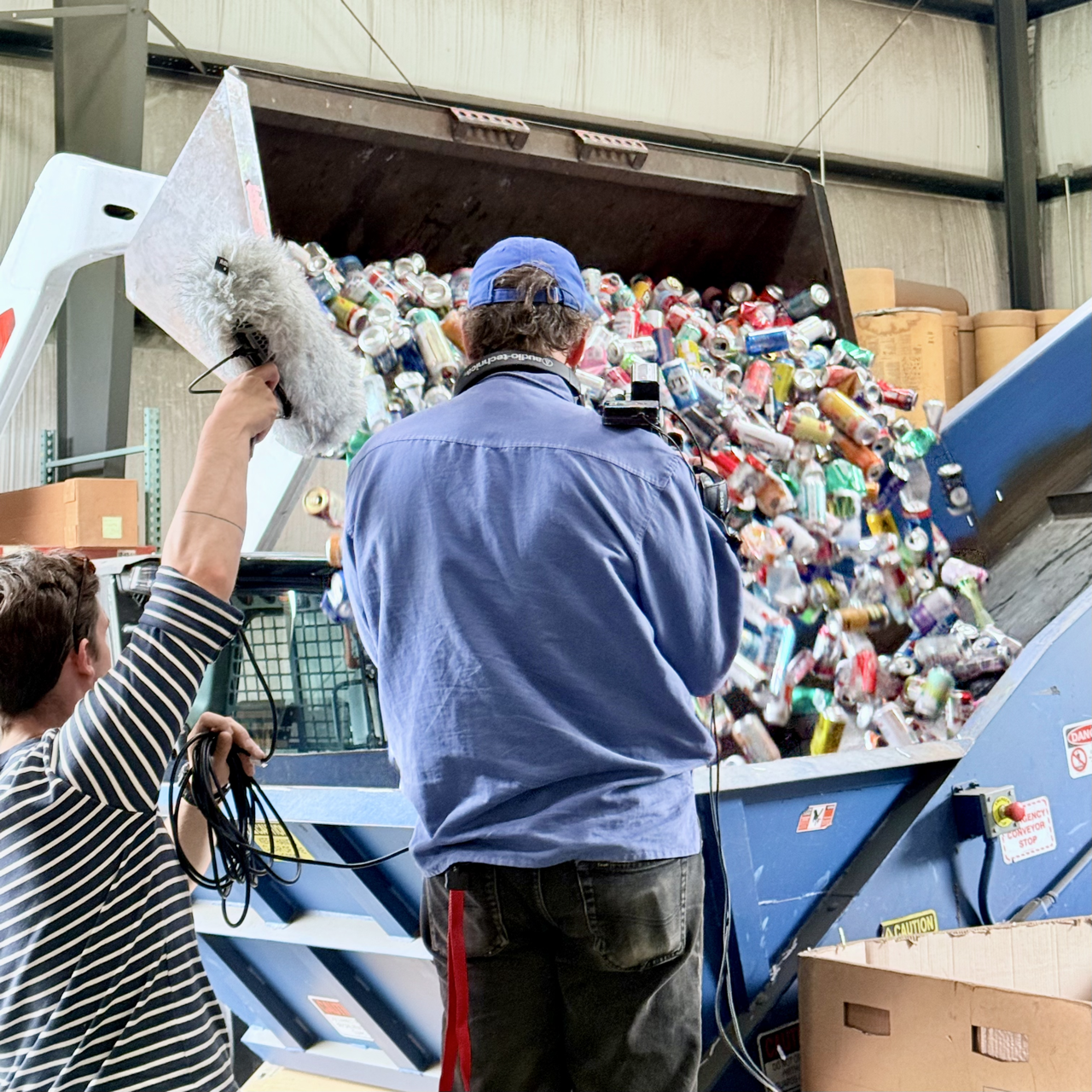
Our final shooting location was at Harding Metals in Northwood, where we got to tour their full metal recycling operation. Harding accepts metal from industrial, commercial, municipal, and individuals, so it is a VERY busy place! Their detailed separation is impressive, as well as the steps they take to make sure that every bit of metal is recycled - including a process that is able to sort out metal from soil and other debris! We got to crush cars in a giant hydraulic crusher and watched as a metal cutter sliced through large roof pieces with ease.
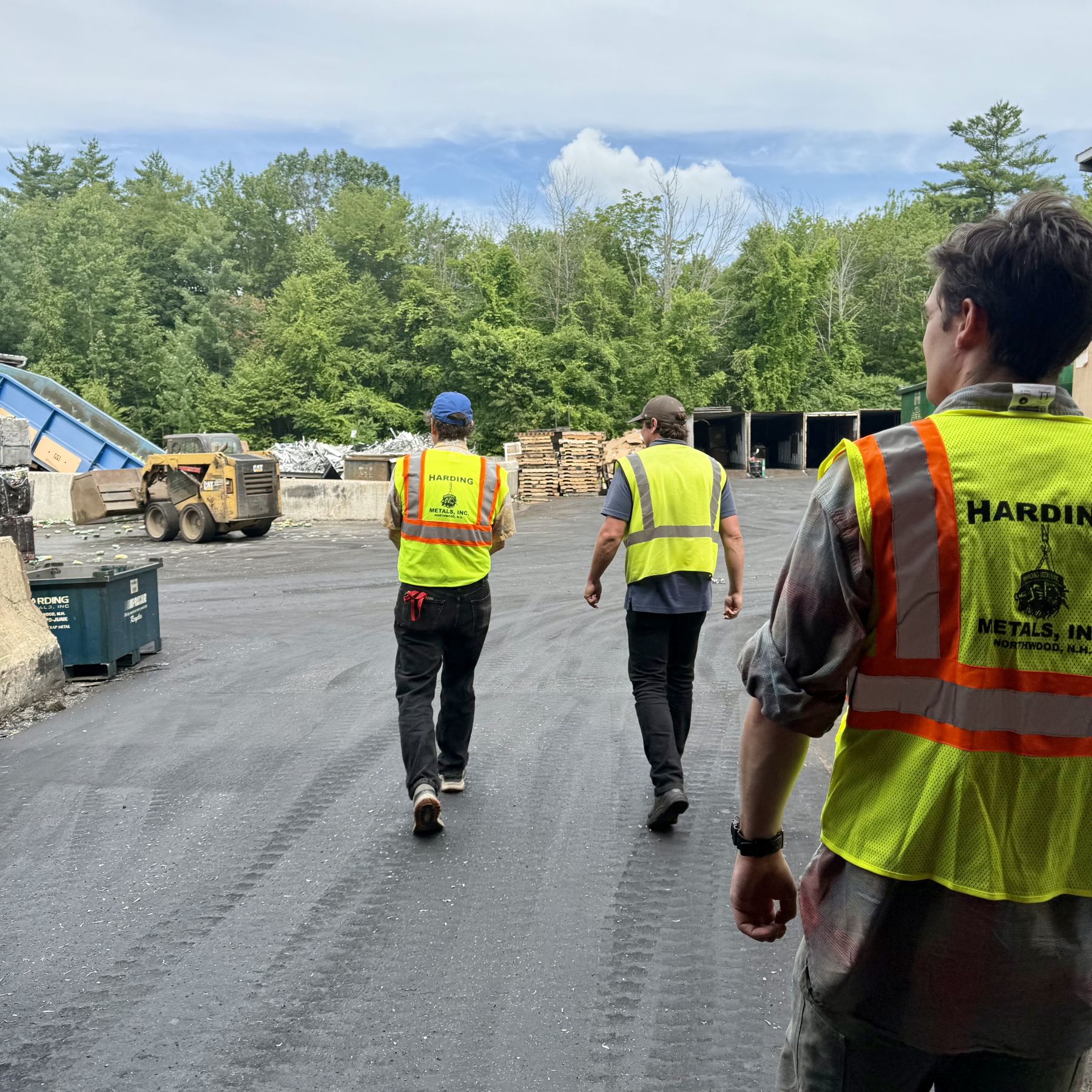
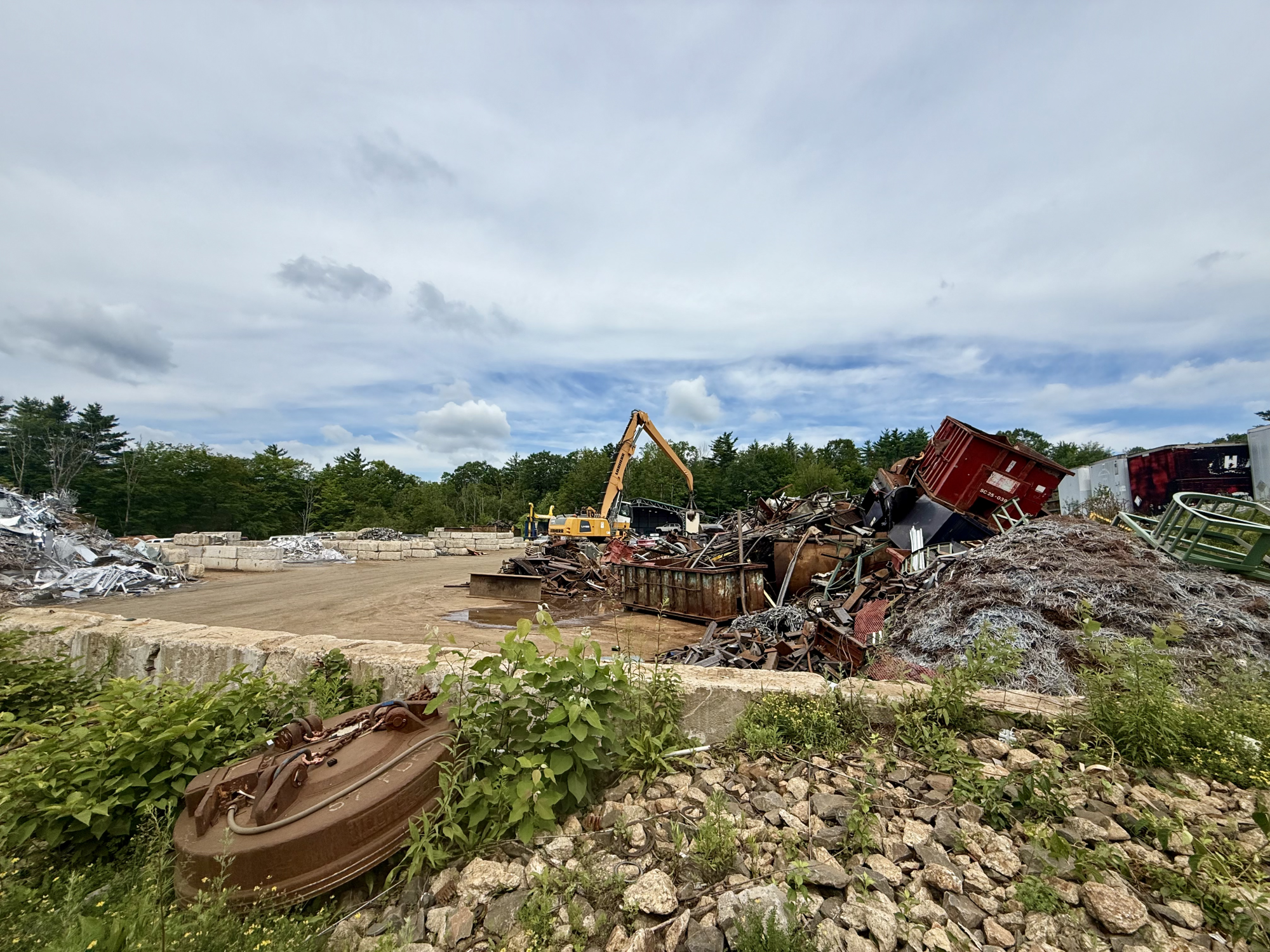
The actual shoot was focused on aluminum recycling, where transfer station bales are opened, separated to remove any contamination, and baled into larger, denser bales weighing in around 1100 pounds (opposed to a standard transfer station bale, which weighs around 550 pounds). From Harding, these bales are sent to the southwest where they are again opened, shredded, melted, and turned into new aluminum cans. The whole process is quick - from transfer station to shelf as a new can happens in about 60 days!
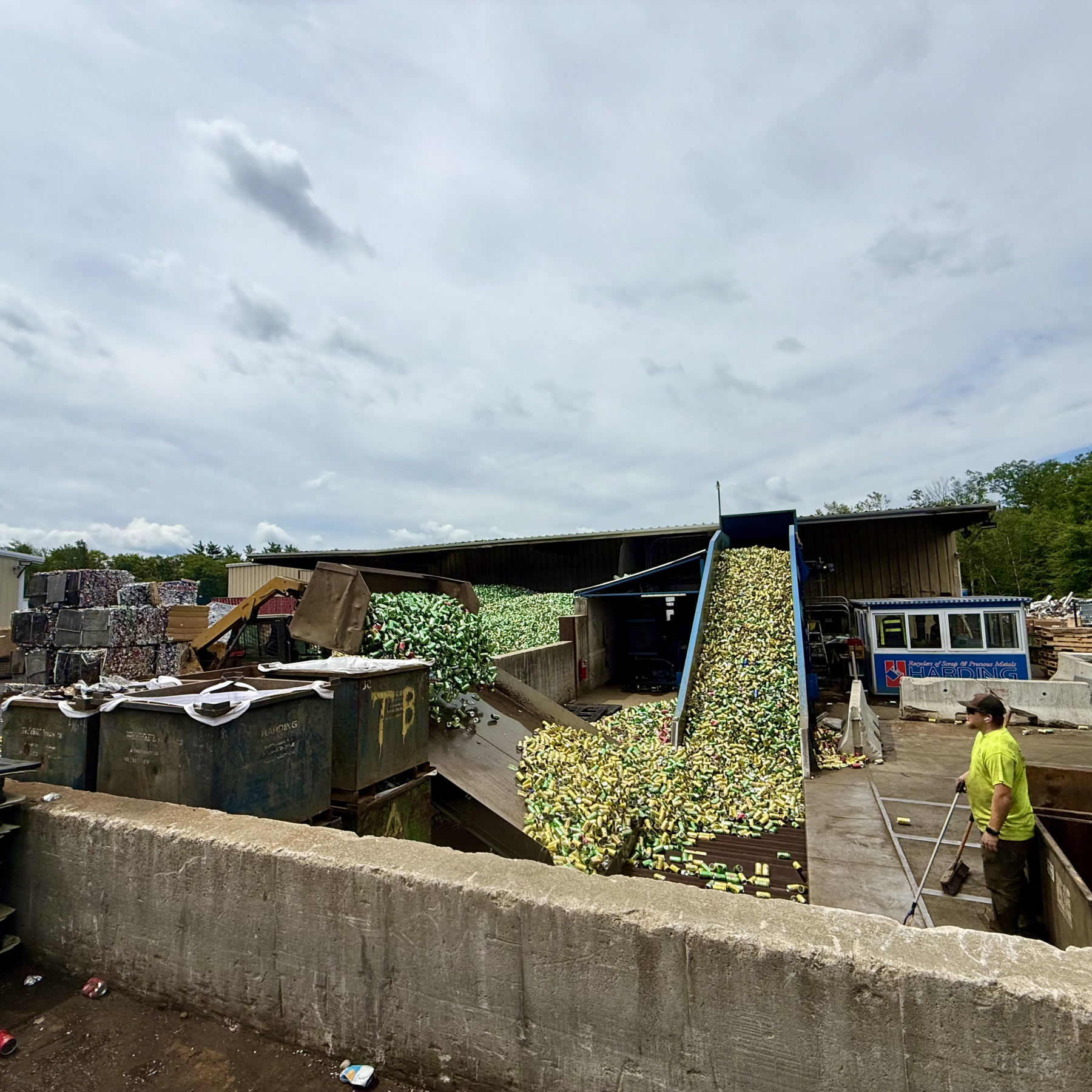
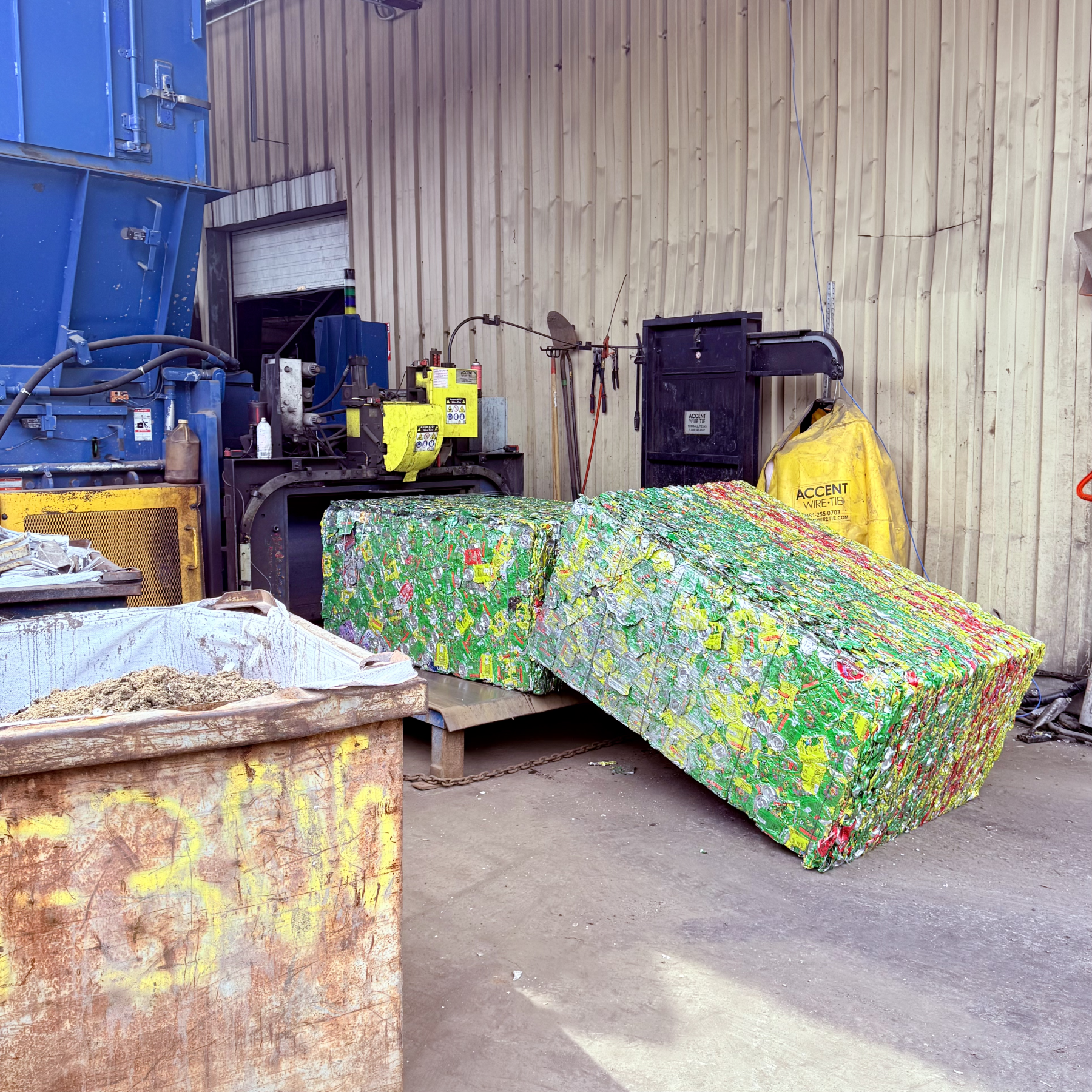
The three (or four!) videos will be edited and published by the end of July and will be shown on social media, as well as public access TV in the North Country to help show residents and visitors exactly what happens to recyclables once they are dropped off at the recycling center. We can't wait to share them here as well, so be sure to check back!
- EPA disclaimer: This project has been funded wholly or in part by the United States Environmental Protection Agency under assistance agreement 4Y-84078701 to NH Recycles. The contents of this project do not necessarily reflect the views and policies of the EPA.